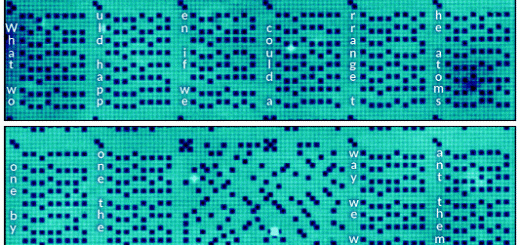The Workshop at the End of the World -Kristin Janz
The workshop’s bright interior felt like a sauna after the numbing midwinter cold outdoors. The old man immediately took off his fur-lined hat and gloves and started unfastening the buttons of his greatcoat. His workers glanced up from benches and forge upon his entrance, but they took too much pride in their work to set it aside and rush to greet him.
Their work was remarkable in its craftsmanship. Hand-turned wooden pull toys, sanded to a silky sheen and polished with real beeswax; stuffed animals with button and thread faces so real that he caught himself looking twice; wooden and iron puzzle games that he knew would have him scratching his own white head for hours if he attempted them. Genuine steel swords scaled down to fit an adolescent hand, some with jeweled hilts.
That last had him shaking his head. He hadn’t been able to use swords as Christmas gifts in over a hundred years, and the quantity produced had always far outstripped the number of appropriate recipients. He had to trade for or purchase the toy guns he needed, because as far as the elves were concerned, gunpowder projectile weapons did not exist.
At the far end of the cavernous workshop, Lord Mitharnior stood in conference with his two cousins, all three tall, dark-haired, solemn in their agelessness. Mitharnior had led these others here long ago, refugees from a distant land that no longer knew or welcomed them. The north was cold, but they had found solace here: warm hearth fires to light the long nights, a renewed sense of purpose. Meaning.
The old man grimaced. He could not allow his thoughts to travel down that path. It didn’t matter how much purpose and meaning their efforts in his workshop brought the elves. Times had changed, and he could no longer afford to let them believe that they were assisting him.
Mitharnior stepped away from the others as the old man approached. “Nicholas! Well met, wizard. We have much to show you.”
“Uh, yes, Mitharnior, about that–” the old man started to say, trailing off as Mitharnior strode toward the nearest workbench.
He didn’t have the heart to interrupt the elf lord, determined to show him each new item. He murmured admiration at gracefully strung lutes and harps (were there any children these days who knew what a lute was, let alone how to play one?); ran a gentle finger along the snow-white fletching of handmade arrows; nodded at a tray of cooling marbles, multi-hued drops of molten glass. Inwardly, he found himself calculating how much each item could be listed for, how many handheld gaming consoles, movie tie-in figures, and brightly-colored plastic block sets he could buy with the proceeds (the elves did not accept the existence of petroleum products, either). The numbers did not look promising.
After, in an alcove off the main floor that served as Mitharnior’s reception room, over steaming cups of mulled wine (the old man sipped his out of politeness only, having acquired a taste for sweeter beverages in recent years), Mitharnior asked what the problem was.
Before the old man could ask why he thought there was a problem–or insist that there wasn’t–the elf said, “My question surprises you, but I can see from your countenance that you come with a heavy heart.”
The old man sighed, scratching his bearded chin. “The toys, Mitharnior. The toys.” He stared into the dancing flames of the small hearth, unable to meet Mitharnior’s gray eyes. “You see, I can’t… they’re beautiful, perfect, more than perfect. But for a long time now–”
“The children of men no longer desire such toys,” Mitharnior said. “Is this what troubles you?” He set the engraved silver cup in his right hand on the low table between them. “We do not isolate ourselves as entirely as you seem to believe, Nicholas. One of my younger kinsmen”–young to Mitharnior meant having lived fewer than a thousand years–“went out in the world to see how the cities of men had changed. He brought back a device that I would once have called magic, a kind of seeing eye. But I know that what used to be accomplished by magic is done now by waves of invisible light cast from tower to tower around the world.”
The old man nodded. “Some children still appreciate the toys you make. Or their parents do. Other children want new, not old. I’ve been finding buyers for what your kinsmen and kinswomen make and using the proceeds to buy toys I can give out. But it’s becoming more difficult. I’m having trouble locating enough people willing or able to pay what the items are worth. And there’s the materials cost for your supplies, for next year. That keeps going up. I can’t afford to do this much longer, Mitharnior. I’m sorry. I should have told you before now.”
Mitharnior remained silent for such a long time that the old man feared he had offended him. But when the elf spoke he said, “It is I who should be sorry. We came here to be useful and instead have become a burden to you.”
“Never a burden!” the old man protested. “And you have been useful. I wouldn’t have been able to provide gifts for so many children over the years without your help. It’s just… times have changed, and for a number of years now my pre-Christmas appearances have been more profitable than the elven handcrafts….”
“Times have changed,” the elf said, “here and elsewhere, and we find ourselves unwilling to change with them. We are not made that way. And yet, holding onto things that once were and now are not has been a cause of great evil.”
The old man wanted to tell Mitharnior that he wasn’t evil, far from it, but it seemed the sort of assurance offered when the speaker didn’t quite believe it and so he said nothing.
He wondered if there were things he was holding onto.
Next morning the workshop was dark and silent, the elves’ apartments empty. No letter or note indicated where they had gone, and the shifting drifts of snow had covered over their footprints.
But the workshop was not empty. When the old man brought a candle for light, he saw that among the handcrafted toys of wood, silk, and iron, the elves had left brand-name tablet computers indistinguishable from those fashioned in the official factories, small helicopters and cars powered by remote control, plastic dolls sporting the latest fashions and with hair in every color of the rainbow. There were toys for every child on his list, and more.
“Never a burden, Mitharnior,” he murmured. “Never a burden.”











Recent Comments